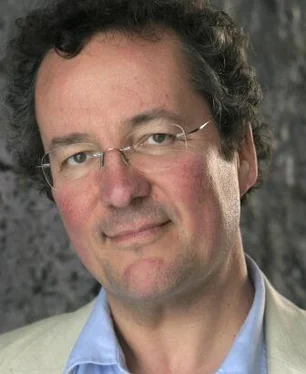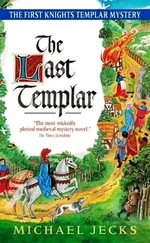‘A man has threatened her with blackmail.’
He released her with a feeling of anti-climax. Blackmail was a good way to earn money, he knew. He wondered what scandalous thing it was, that she was paying to keep quiet. If he could learn it, it might benefit him. However, he did think that it was unnecessary to kill all the others just because the Doña wanted one man dead. Not that it mattered.
But now it did matter. It mattered a great deal, because his own boy was dead. Poor Sancho; it was terrible to think that he’d never be able to rely on the lad at his side in a fight. Sancho was dead and gone for ever.
The thought brought a huge gobbet of grief into Domingo’s breast. To lose it, he stood and sniffed, gazing about him like a man idly stretching. He could feel the tension in his men, as though they knew what he was going through and feared that he might explode into violence. They had seen his rages before. Curiously, he felt no need. For once in his life, fighting would not assuage his spirit. It couldn’t.
In the square, he could see the men discussing the dead woman in the blue dress. It was nothing to him. Others mattered not at all, compared with poor Sancho. When they returned to their little church in their home town, Domingo would have to make an offering in Sancho’s memory. Their town was poor, but at least the priest was on the side of the poverty-struck peasants. They had little enough to look forward to, as he knew – only the annual cycle of labour on the land, unless they could break out like Domingo and find work elsewhere, making use of their physical strength in the service of whichever lord or lady offered the most money.
That was when he saw him, over at the far side of the square, peering down at the body with a clinical interest.
It was the fair one, the tall, easy-looking bastard. He was with the other, the one who’d ridden into the fight with two blades flashing; while the fair one killed Sancho, the other one had slaughtered others. Domingo’s son Sancho was killed as he struck down a pilgrim, and then the fair man rode over his poor body, trampling it in the dirt like the carcass of a dead fox. As though there was nothing to worry about, killing a man like that. There was nothing but shame in leaving a man alive who could behave in such a manner towards Domingo’s kin. This was a deed that could only be punished with blood, with the man’s blood.
Dropping the cup and letting it shatter on the stone floor, Domingo stood up straight, twisting his head as he contemplated the bastard. He thought he was powerful, Domingo saw; thought he was superior to all others, probably. Well, Domingo would prove him wrong. He would cut out the man’s heart and eat it. He’d open his belly and throttle him with his own bowels. He’d …
‘Domingo? What is it?’ One of his men was watching him warily.
‘Him – the fair one. He’s the man who killed Sancho.’
‘You are sure?’
Domingo barely glanced at him, but reached out with the speed of a striking snake, took hold of Azo’s shirt and pulled. The other was a thin, unhealthy-looking youth of nearly twenty, his face a mass of acne, and he looked terrified as Domingo held him close enough to see the sweat of fear starting from his forehead. ‘Yes,’ he hissed. ‘I am sure. I watched him slaughter my son like a pig. You think I would forget his face?’
‘We can do nothing here in the city,’ another man cautioned. ‘If we do, we’ll be found.’
‘I want his head. The man killed my boy. I want him to pay.’
Azo felt himself being released and stood back, watching as Domingo touched his old wooden-handled dagger. ‘They were fearsome fighters,’ he said hesitantly.
Domingo sneered at him, then hawked and spat at his feet. ‘So am I!’ he snarled as he walked out and followed after the fair man. However, when he reached the square, the tall figure had disappeared. He took one alley at random, hurrying up it and staring about him, but although he followed it to the old city’s wall, he saw neither hide nor hair of his quarry.
Feeling the hilt of his dagger, Domingo licked lips which were dry with expectation and swore softly.
‘I shall find you, murderer of my Sancho. On his grave, I swear I shall find you, and cut you to pieces!’
Simon felt torn as he watched the grieving figure of Ramón walk slowly through the crowds, carrying his murdered fiancée to the Cathedral. Even when he was lost to view, the moving of heads showed where he was. ‘Baldwin, we have to ask him what’s happened here,’ he said quickly. ‘Perhaps he knows of someone who was obsessed with his fiancée and might be guilty of this crime.’
‘Look, this is nothing to do with us,’ Baldwin countered, but his interest was obviously piqued.
‘The lady can’t be questioned yet: she’ll need some time to recover from the shock. But that man, he was clearly very fond of the girl. Come on! Let’s go and speak to him – see if he can think of some reason why his woman should have been murdered.’
Baldwin glanced at Munio, but the Pesquisidor was arguing with a skinny man at the cart. It looked as though he was the cart’s owner, and was demanding payment for the use of it. ‘It is his investigation, not ours,’ he said reluctantly.
‘And he’s not pursuing the one man who might help,’ Simon snapped. ‘Come along!’
Baldwin gave up his reservations. As Simon said, this man could have some useful information, and it would be sheer folly to let him disappear without trying to learn whatever they could from him. He nodded and the two darted off through the crowd.
It was hard to see him, but they were able to push their way through the people without difficulty, their clothing and swords tending to give them more authority than most pilgrims, and when they were through, Simon pointed. Far off, in the southwestern corner of the square, they saw Ramón with his bloody burden, passing about the corner of one building and disappearing from sight.
Baldwin instantly pelted off after him, but Simon suddenly felt a little wobbly on his legs. The heat was like a furnace. It felt as though he was in a forge, and trying to run in such a temperature was mad. He moved forward as quickly as he could, but he had a tough time of it. By the time he reached the corner of the roadway, Baldwin was already waiting, an expression of half-annoyance, half-concern on his face. ‘Are you all right?’
‘I felt a little odd,’ Simon admitted. ‘I’ll be all right in a minute.’
Baldwin glanced over his shoulder. ‘We’ve missed him now,’ he said with disappointment. ‘Do you want to rest a moment?’
‘No, I want to find the blasted man.’
‘We cannot do that now. He could be anywhere,’ Baldwin said.
The alley stretched before them for several hundred yards, with other lanes turning off to the north and south. The man could have taken any number of turns, either into lanes or entering a doorway.
‘God’s cods,’ Simon cursed bitterly. If only his sudden weakness had not attacked him, they could have caught up with the man.
They were walking back towards the square and Munio. Simon puffed out his cheeks and moved his belt. It felt too heavy and hot about his waist, and he could feel the prickling of sweat beneath it.
‘Are you sure you are well, Simon?’ Baldwin asked.
‘Yes, yes,’ he replied tetchily. ‘I just feel a bit hot, that’s all.’
‘So long as you are sure. You look almost yellow.’ Baldwin decided they must find a tavern as quickly as possible. His companion looked quite unwell.
‘So there you are! I have been looking for you!’ Munio bellowed angrily. ‘Come here, and don’t run off again.’
Ramón entered the little chapel and carefully set the body down before the altar. It was not usual for women to be permitted in this place, and it was still less normal for a man to perform this last, most intimate service, but he didn’t care.
Читать дальше












